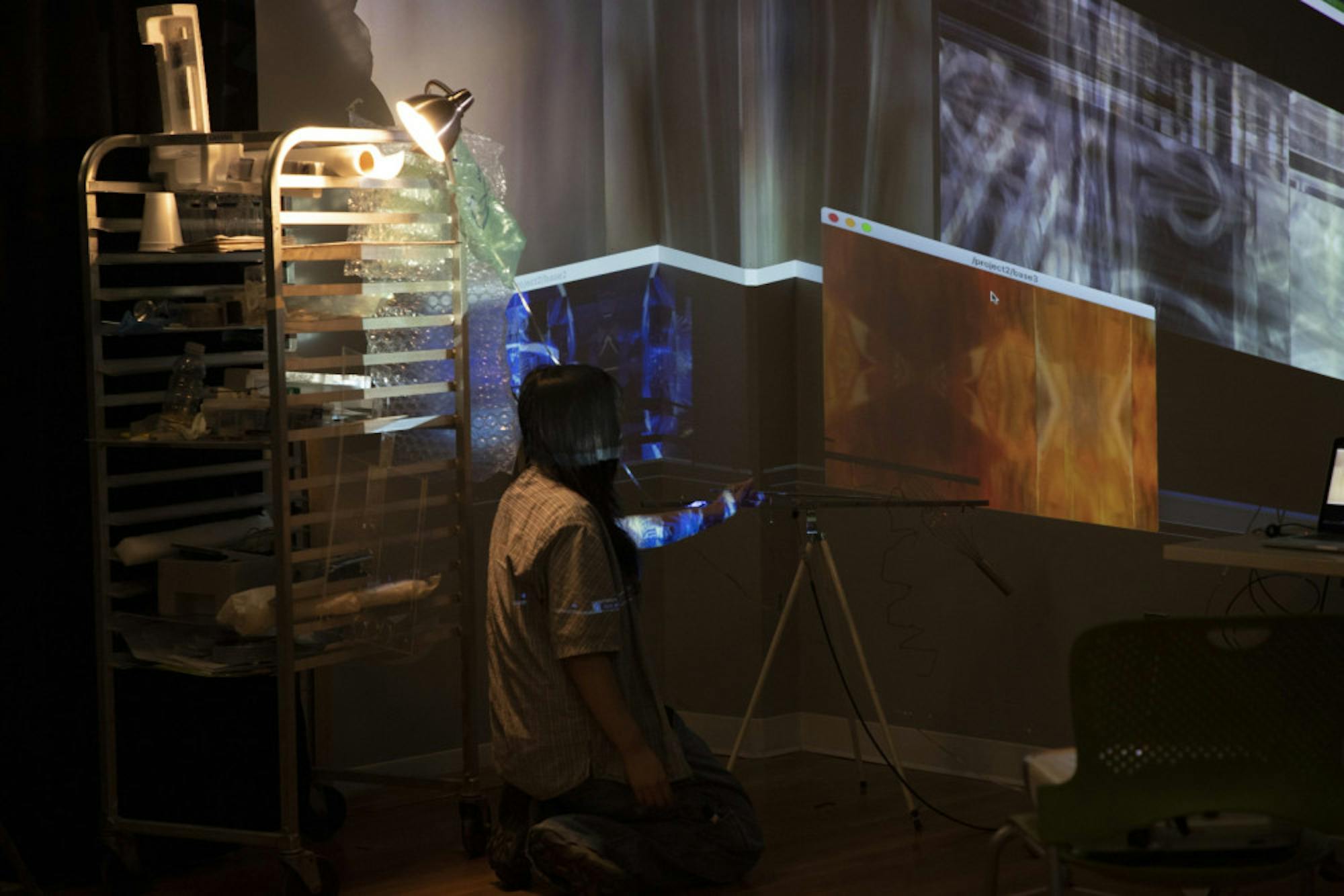The School of the Museum of Fine Arts is more racially diverse than the School of Arts and Sciences and the School of Engineering, but white students still make up the plurality of those enrolled. The Artists of Color Union (ACU) at the SMFA seeks to center the experiences of artists of color at the SMFA and at Tufts, and provides a space for artists to connect with and support one another.
“As a freshman, I lived in the Beacon [Street] dorms, so trying to go to Medford and find clubs there that spoke about my identities was kind of hard,” Geovani Cruz, a co-leader of the ACU, said. “I kind of felt at home with ACU.”
According to Cruz and Freya Gupta, the ACU’s treasurer, the organization began to fall into obscurity in 2020 after its former leadership graduated, but was revitalized through the efforts of members and rising leadership.
“It was kind of in our hands whether we wanted to continue it or not,” Gupta, a third-year combined degree student, said. “We kind of wanted to create a space for BIPOC students to share their identities and their culture in a space that's predominantly white.”
The leadership structure of the ACU is unique in that although different positions are held by different executive board members, responsibility is greatly shared among members, resulting in a collaborative practice.
“Tufts wants us to have the president, vice president, secretary, all those things, but, as a club, we want everybody to have a voice and to share their experiences and to share leadership,” Cruz said.
Gupta shared that this structure results in a collaborative experience for members.
“Whoever is comfortable handling a certain project will take charge of that, and then we will work very collaboratively,” she said.
The ACU hosts events and regular meetings during the semester that serve to build community through artistic and social pathways. One event that ACU leadership planned for this semester was a mock review board event for artists of color.
Review boards, which are final evaluations for students enrolled in eight or more SHUs of studio classes, require artists to speak holistically about their semester’s work to faculty and peers for approximately one hour — a demanding yet valuable experience for students. The ACU’s mock review boards, which took place on Dec. 3, provided artists a chance to practice sharing their work in a truncated review board format.
“Our freshmen and sophomores have never had an in-person review board,” Gupta said. “We thought that it would be a very important experience for all of us.”
For many members of the ACU, their artwork and their identities overlap. Cruz, a third-year student in the BFA program, shared that both his past experience living undocumented in the U.S. and his Salvadoran identity informs much of what he creates.
“It was not until this summer and then about a month ago that I received my permanent residency,” Cruz said. “Now I'm kind of more open about my own identities … [my] freshman and sophomore year, I wasn't able to actually talk about what my work was.”
Cruz explained that his work has “dramatically changed” since receiving his permanent residency and referenced several recent woodcut reliefs he created that deconstruct the flag of El Salvador by identifying symbols and colors that appear in the flag.
“A lot of my work is about deconstructing my identity of being Salvadoran,” Cruz said.“Living undocumented for so long, I wasn't able to be in my own country even though I have documentation that said I'm a citizen there … Now that I'm able to, I feel like my work has dramatically changed into documenting everything that I've lived for, and how that kind of informs my art practice as of now and what I can envision for the future.”
Gupta, who shared that their artwork is also informed by many aspects of her identity including their sexuality and ethnicity, sees the ACU as a space where she can speak freely about their work.
“It feels like such a safe space for me because you get to be who you are without having to filter any aspect of your identity, which is this power that ACU gives me which I'm very grateful for,” she said.






